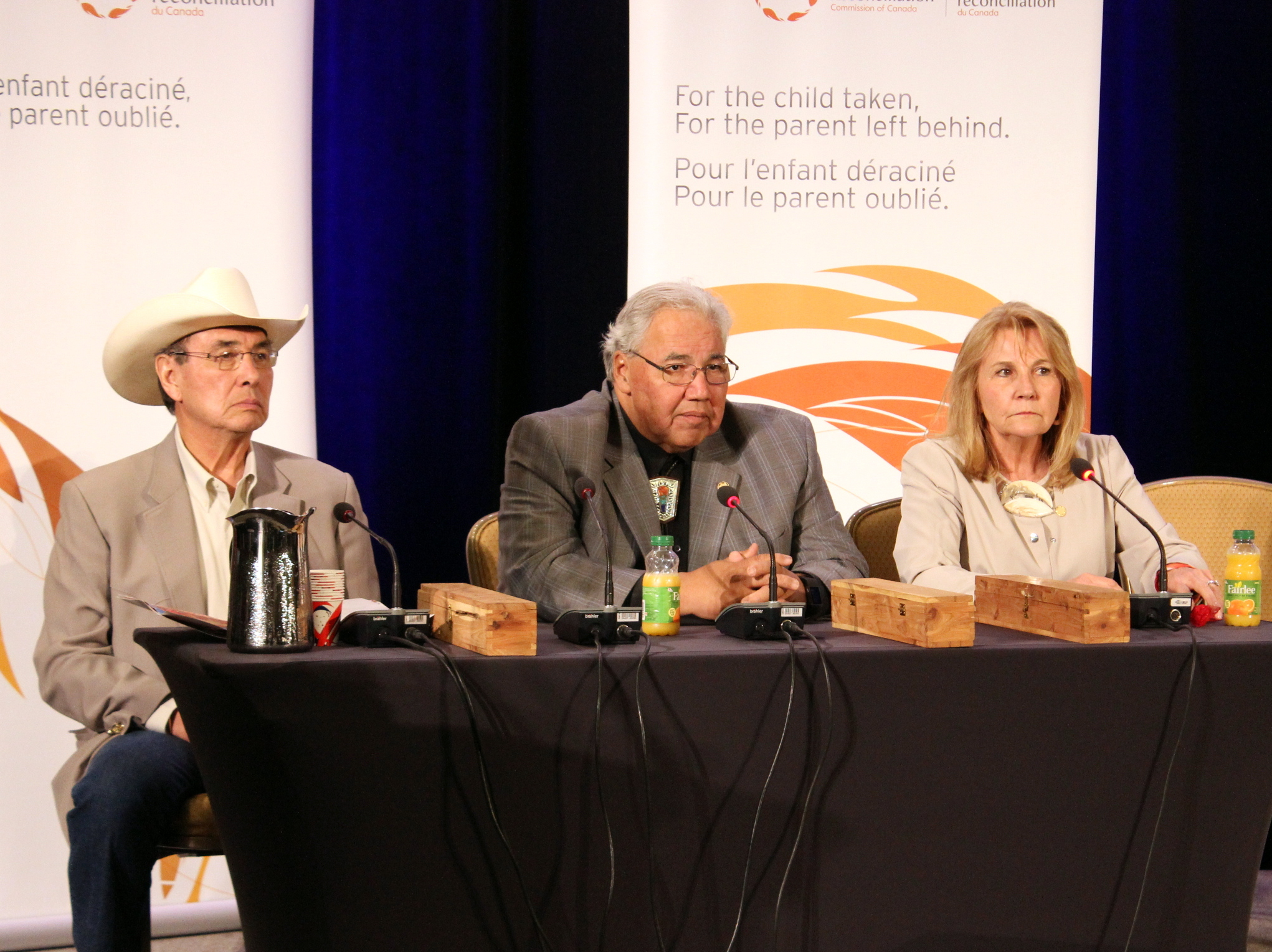Like this article? rabble is reader-supported journalism. Chip in to keep stories like these coming.
It’s been a year since the Truth and Reconciliation Commission (TRC) released its report into the history and legacy of Indian residential schools. Yet most of us have probably read little more than snippets of it or none at all.
Now, Duncan, B.C.-based writer Jennifer Manuel has created an online campaign asking Canadians to pledge that we’ll read the entire 380-page document. Manuel calls it The TRC Reading Challenge. When she began in April, she hoped to have just 1,000 people sign on, but nearly 3,000 have already done so.
History of the schools
The June 2015 report documents what the TRC heard from 6,700 survivors and witnesses over six years of hearings and research. For more than 130 years, Indian residential schools were organized and largely financed by the government but operated by Canadian churches. An estimated 150,000 Indian, Inuit and Metis children were removed from their homes, often forcibly, to attend. They were punished for speaking their languages, lived in substandard conditions and endured physical, emotional and — in some cases — sexual abuse.
TRC commissioners Murray Sinclair, Wilton Littlechild and Marie Wilson have described what happened in the schools as “cultural genocide,” a term that has also been used by Chief Justice Beverly McLachlin, former Prime Minister Paul Martin and others. As such, the report provides 94 recommendations that challenge Canadians to redeem the past by walking in solidarity with Indigenous peoples.
Reasons to read the report
Jennifer Manuel says that there are three underlying principles behind her TRC Challenge: that we care about the relationship between Indigenous and non-Indigenous peoples in Canada; that we believe improving the relationship requires dialogue, which means listening to truths expressed by Indigenous peoples; and that we prefer to read the TRC report yourself rather than relying on others to interpret it for us.
Aboriginal Day and beyond
Manuel wants those who make the pledge to begin their reading by National Aboriginal Day on June 21. On that day, she’ll use the TRC Challenge website to publish the names of those who have made the promise. “Take as long as you need to read it,” she says. “It’s not a race. It’s a commitment.”
She also hopes that anyone taking up the challenge will invite at least one other person to do so: a friend, a local city councillor, MLA, MP, local news reporter or national journalist. She says that invitation can be made in person, on the phone or by doing so publicly using social media, such as Facebook or Twitter.
I’m among those who have read only portions of the TRC report. It’s a rich resource, both in its historical detail and in the recommendations it makes for reconciliation. No longer is it possible to say that we don’t know what has happened in the relationship between Indigenous and non-Indigenous people in the past 150 years.
Download for free
You can find the TRC report online and download it for free. If you prefer to order and pay for the book, you can do so here.
This piece was published as a United Church Observer blog on June 3, 2016.
Like this article? rabble is reader-supported journalism. Chip in to keep stories like these coming.



